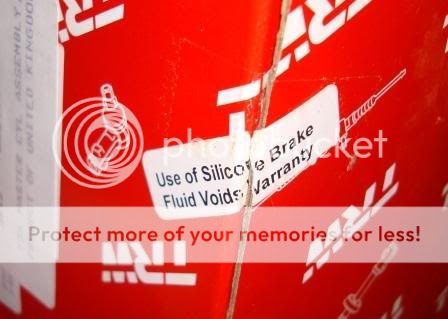angelfj1
Yoda
Offline
Hey guys. I took advantage of CR's deal on brake components. Just received my new master for the 250. Is this something new? SILICONE BRAKE FLUID VOIDS THE WARRANTY??? So then how does this sit with everyone who feels that silicone is the best thing since sliced bread.
Confused!!!


Confused!!!



 Hi Guest!
Hi Guest!

 smilie in place of the real @
smilie in place of the real @
 Pretty Please - add it to our Events forum(s) and add to the calendar! >>
Pretty Please - add it to our Events forum(s) and add to the calendar! >> 

